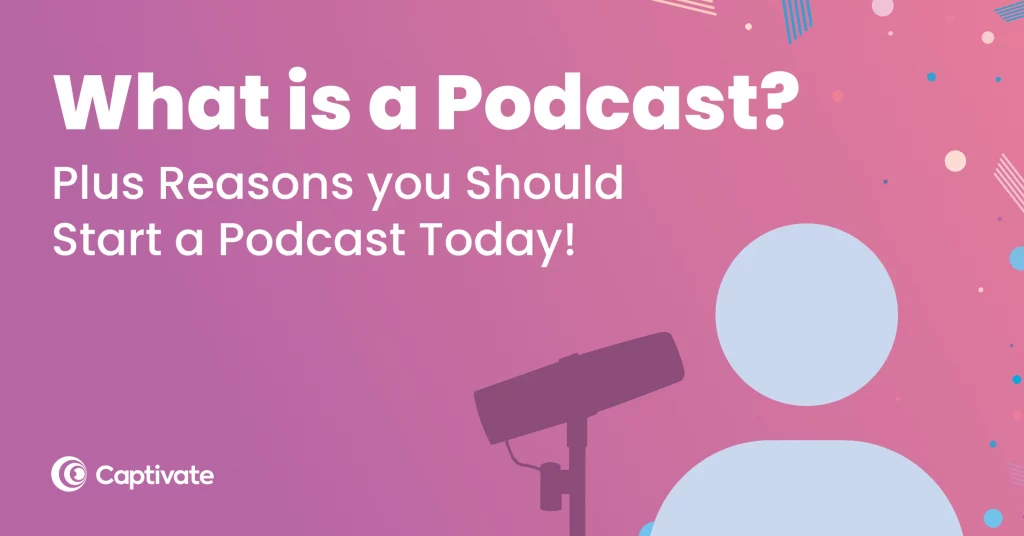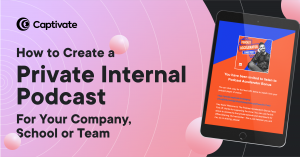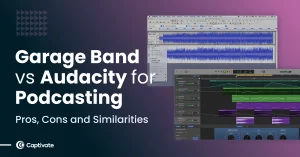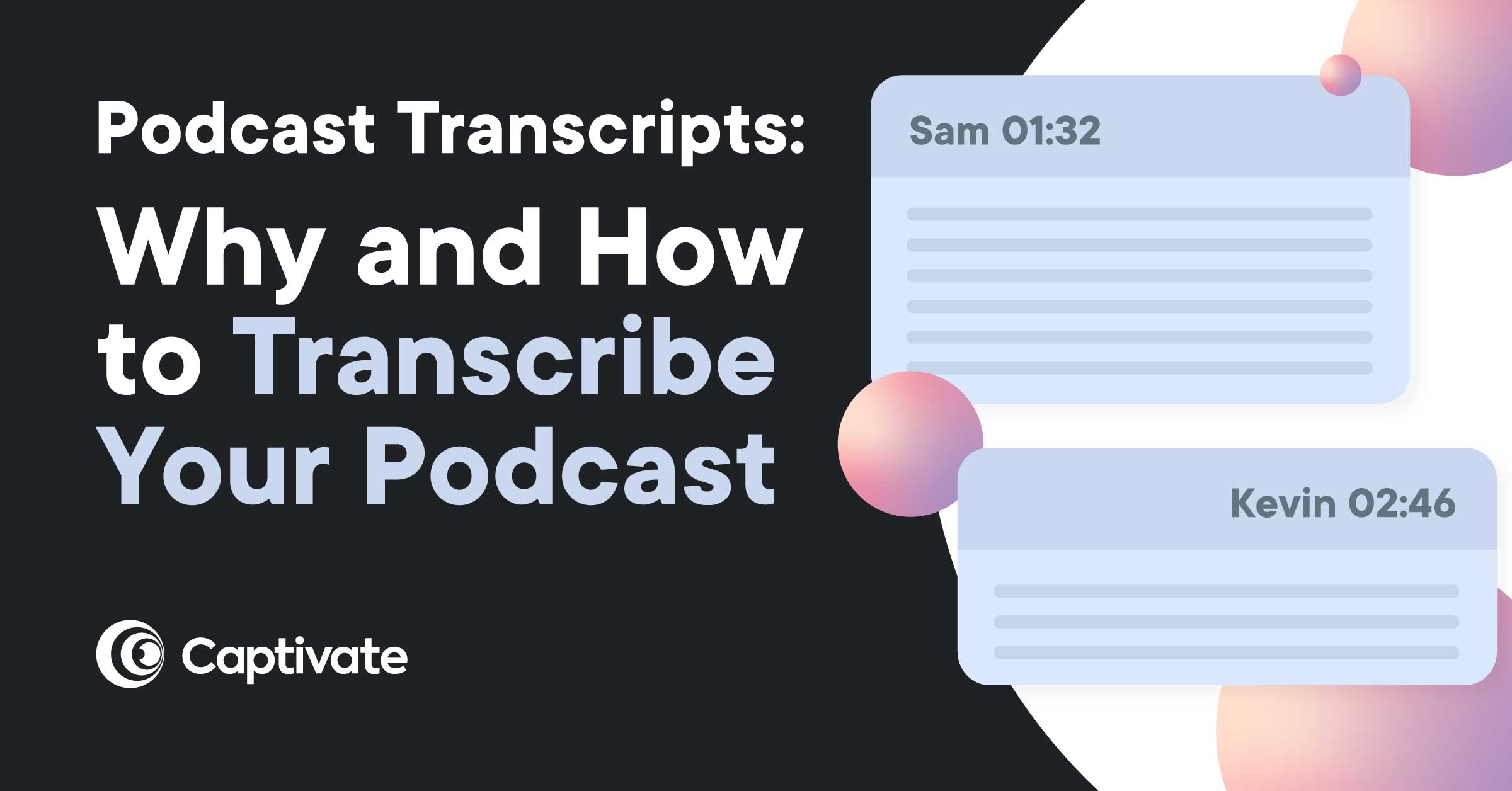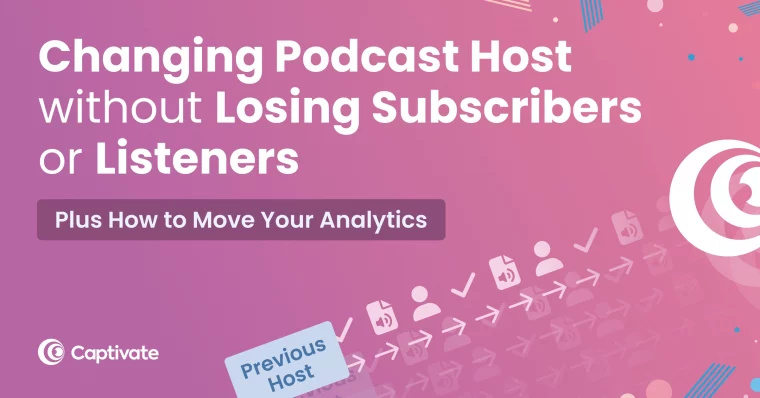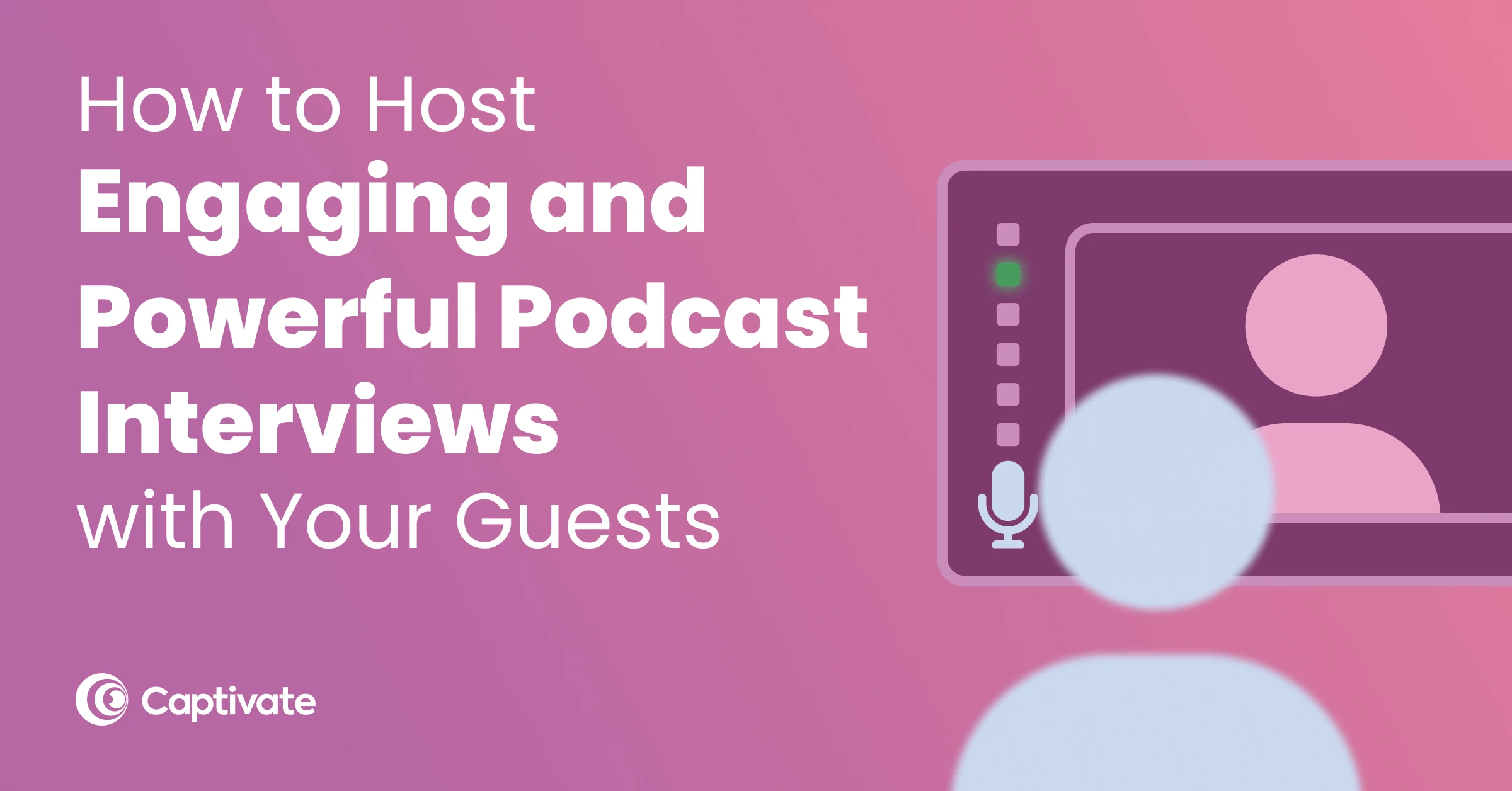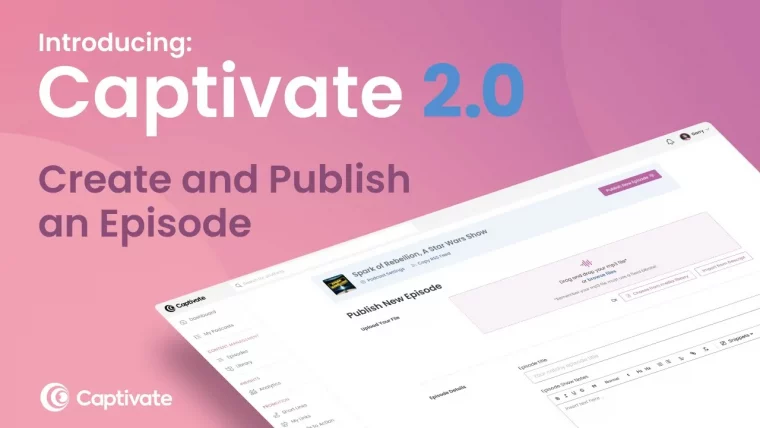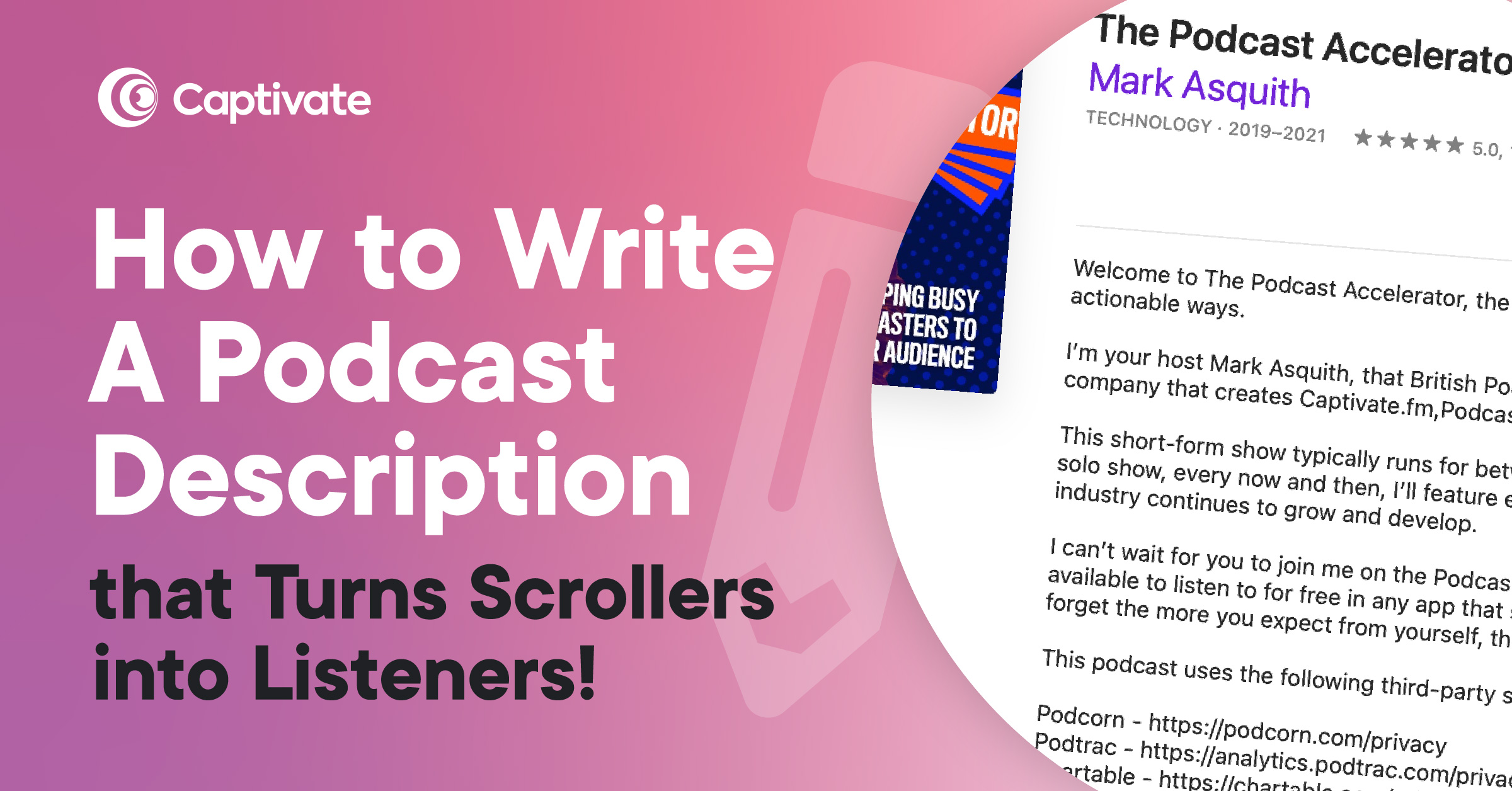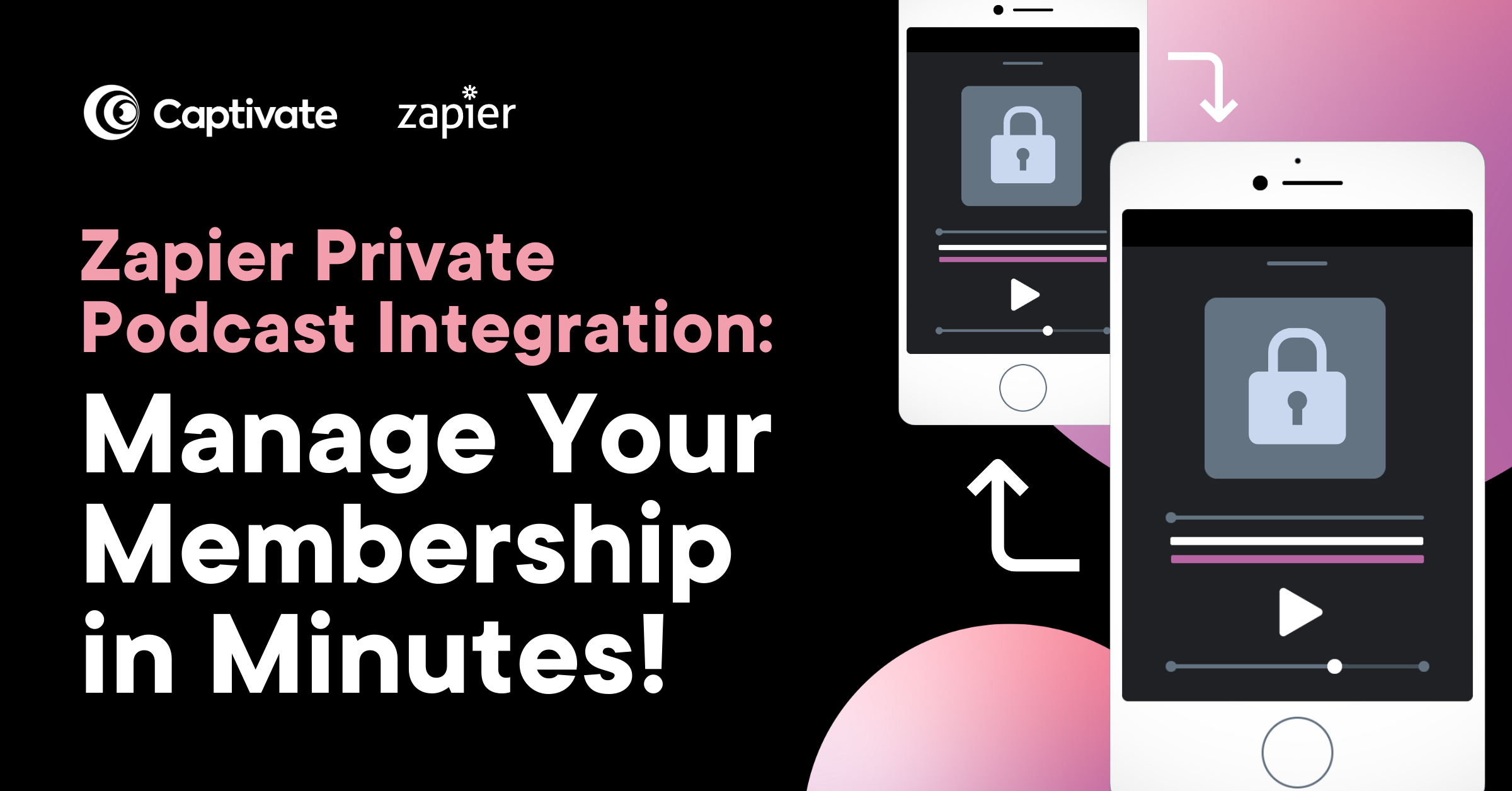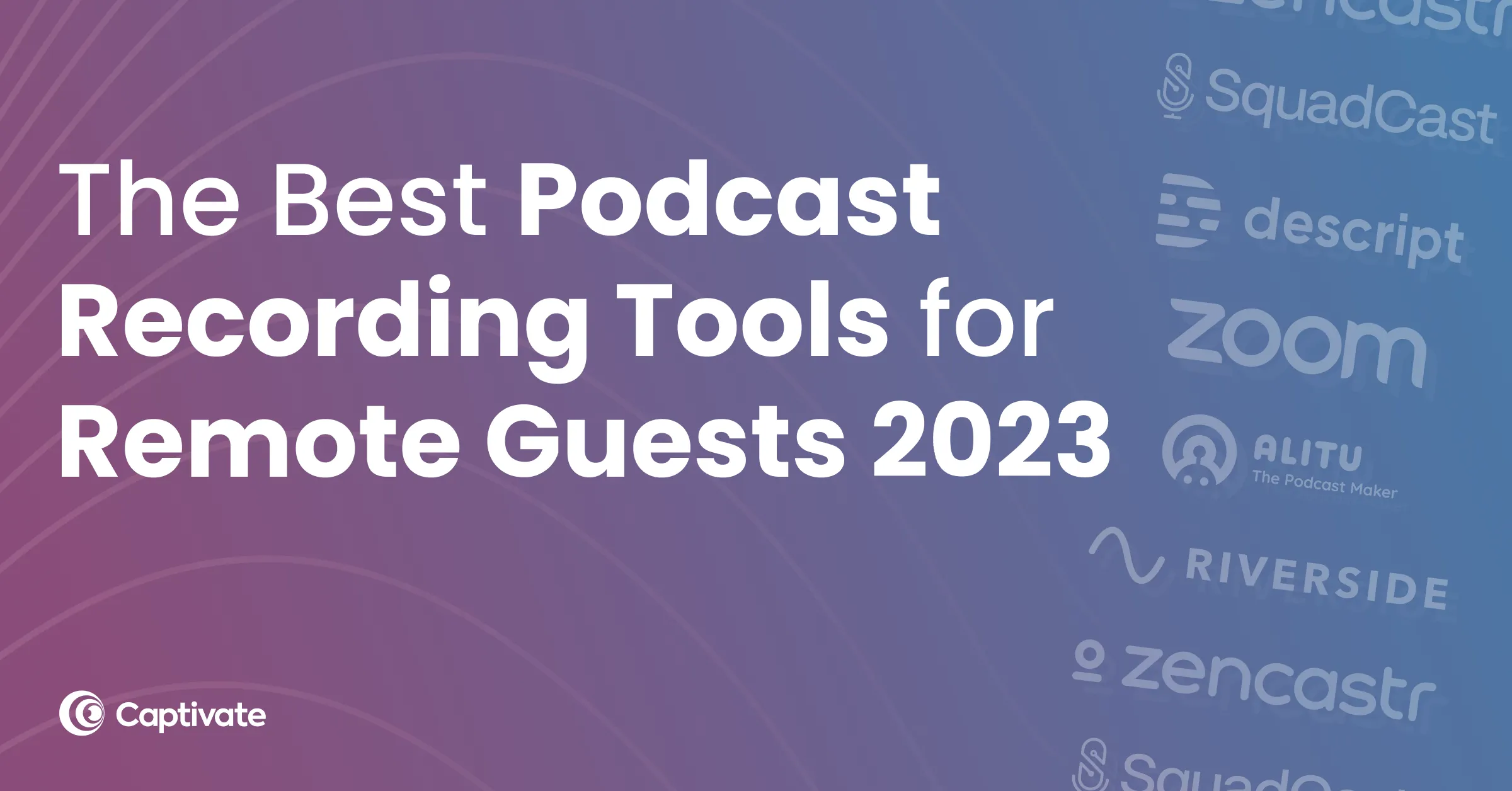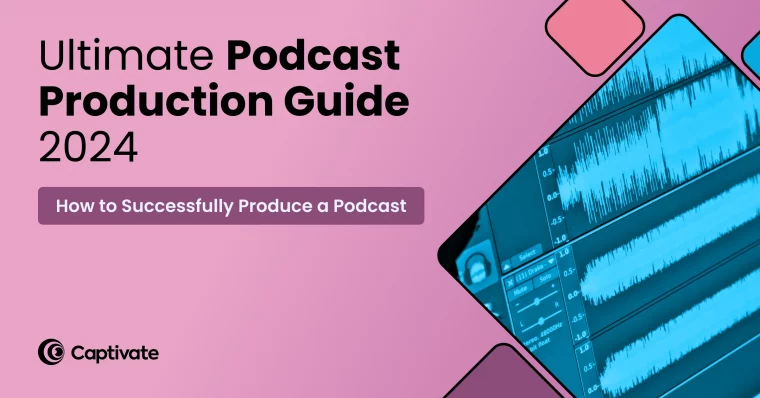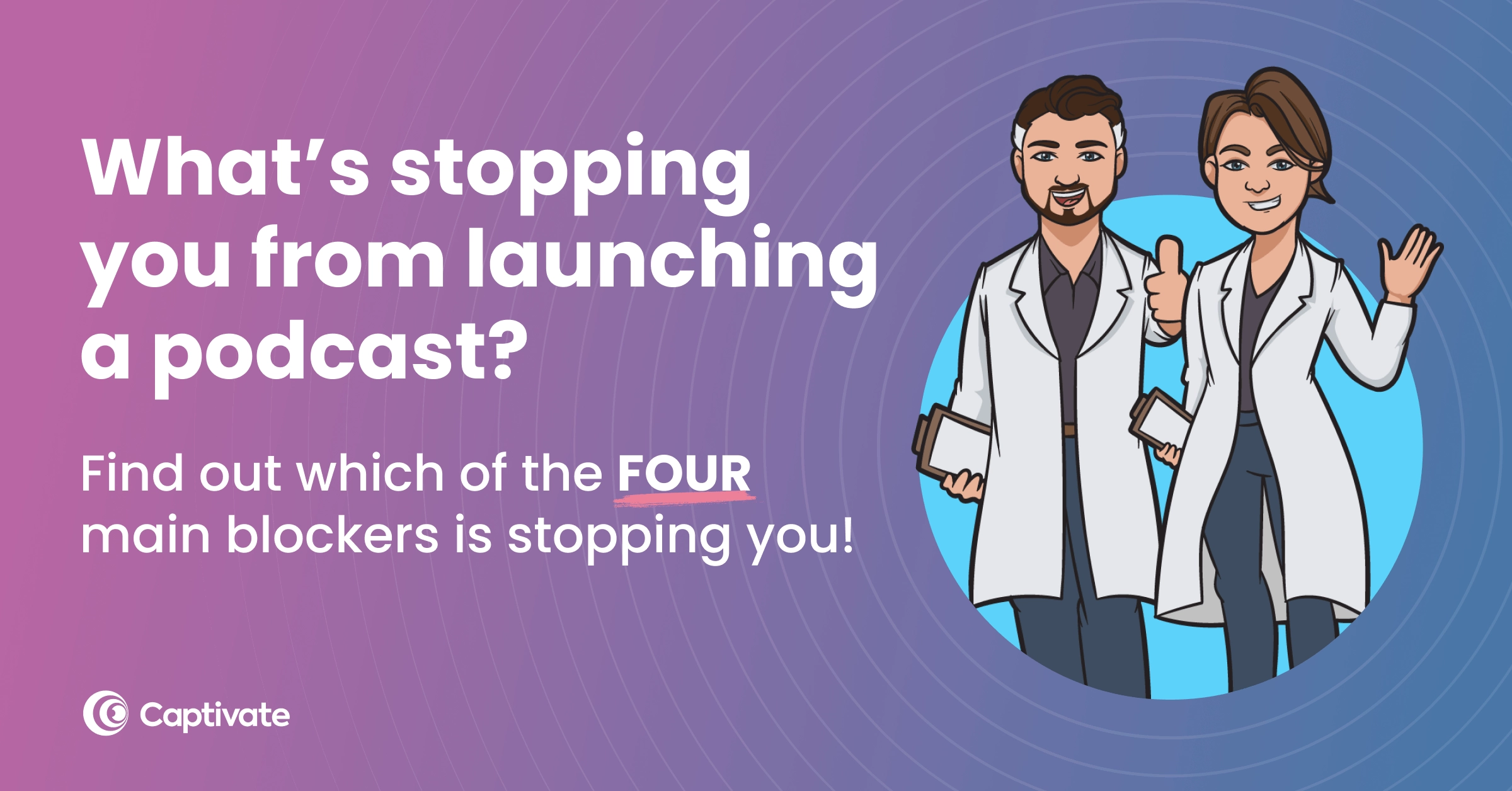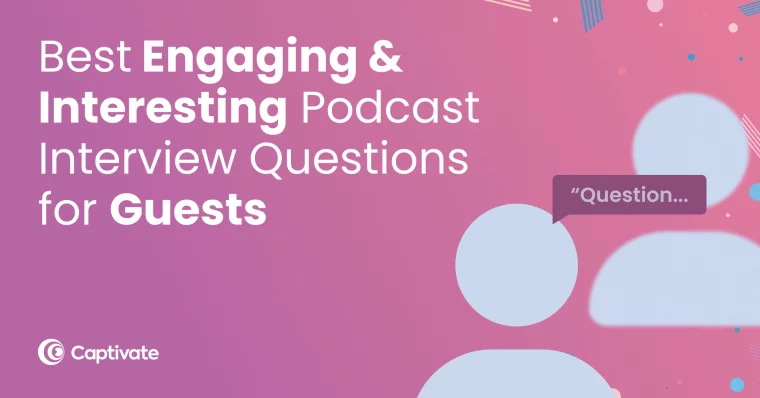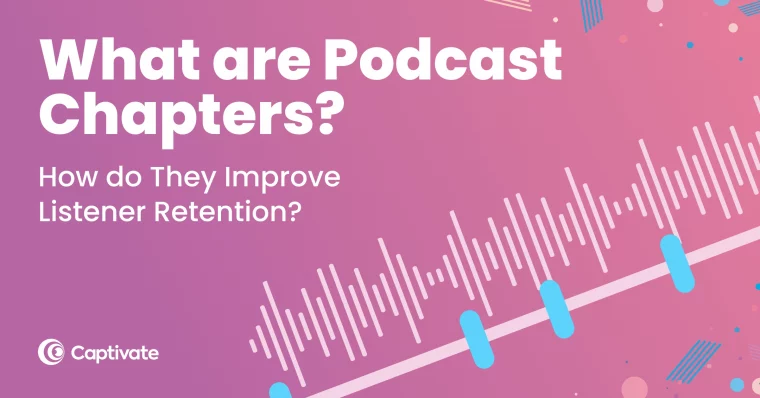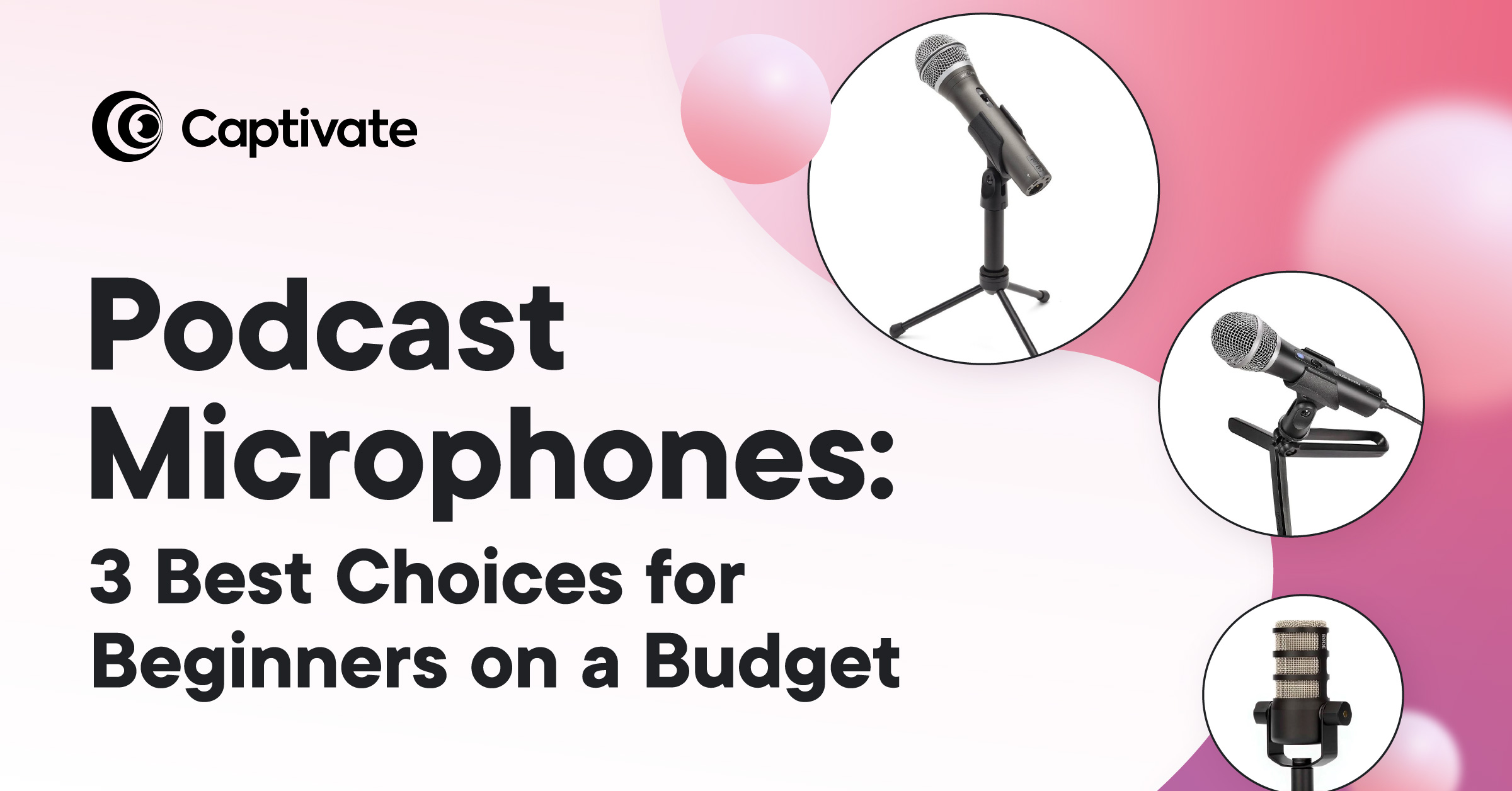These days, it seems everyone is talking about them – but do you know what a podcast is, and why they’re so popular? Read on to find out what podcasts are, how they work and why you should have one.
In this article...
What is a podcast?
The word “podcast” is a blend of “iPod” and “broadcast” and means, essentially, audio on demand. Podcasts have multiple episodes and can be accessed through streaming services (like Apple Podcasts and Spotify), websites and directly through your RSS feed. Purists can argue all day about the exact definition of what a podcast is, but for the average person it just means a piece of audio that can be accessed whenever you want by clicking play on Spotify or Apple.
When did podcasts start?
While the term “podcast” was first used in 2004, it’s generally accepted that podcasting was invented by Adam Curry and David Winer, who wanted a way to download online radio broadcasts to an iPod. Podcasts then took their first step towards the mainstream in 2005, when Steve Jobs made thousands available on the iPod.
Why are podcasts so popular?
In 2020, 332.2 million internet users listened to podcasts. That’s a huge audience, and it’s only getting bigger year on year.
Podcasts are popular because they’re super engaging and entertaining, and they can be engaged with passively – while you’re driving your car, walking around, completing chores or doing some DIY. As streaming services have exploded over the past few years, podcasts have naturally followed suit as they’re so easy to access, providing listeners with meaningful engagement and in depth conversations while they’re just going about their day.
How do podcasts work?
Podcasts are served by RSS feeds, which are essentially a big list of all of your audio files, along with metadata like episode titles, show notes and artwork. After you’ve submitted your RSS feed to a given platform, like Spotify, they check it regularly and pull any new episodes through, as well as updating any changes made to existing uploads.
Podcast hosts like Captivate take care of all the technical aspects of your feed and metadata for you – as a podcaster, you’d just need to choose which platforms you want to be on, upload your episodes to us as and when they’re done, and we’ll look after everything else.
Is it free to listen to podcasts?
Most podcasts can be accessed for free on creators’ websites and streaming platforms. Given that you need to pay a monthly subscription to properly use most streaming services, that’s not really “free”, but you’re not being charged for listening to a new podcast.
Like any kind of content, some creators monetize their podcast, making them available only to paying subscribers. For some creators, this will involve hosting entirely private podcasts, where all episodes are sat behind a paywall, while for others it will just mean paywalling certain episodes with the majority remaining free to listen to.
10 reasons to start a podcast
- You’re passionate about a particular topic/subject
If you really care about something, a podcast is a fantastic way to share your knowledge and enthusiasm on it. Stick at it and you might become a real voice within that niche and get to interview some of your heroes!
- You’ve found a gap in the market
Always a great starting point, identifying a particular niche that you can fill is a fantastic reason to start a podcast. Say you’re into folk music, and you can see no one’s talking about a specific subgenre and interviewing those musicians – it’s your chance to do something new and engaging!
- It’s a new hobby you want to try
Podcasting has exploded in popularity recently, so naturally they’ll be a huge wave of people who have only just decided to get into it. As the old saying goes, the best time to start was yesterday, the second best time is right now!
- You want to build a personal brand
Podcasting is a great way to develop your voice and authority, whether that’s as a speaker on a particular topic or for your small business. You can read our full guide on building your podcast brand here.
- You want to offer something extra for members
Already running a thriving membership programme? Delight your members by giving them access to a private podcast, where episodes are only available to paying members.
- You want to build a community or grow an audience
Hosting a podcast is a really great way to build a community or grow an audience. Talk about topics that you know your target demographic will care about, interact with them on social media, answer their questions and do polls related to your episodes.
- You want to start a podcast for your business
Starting a podcast for your business has many benefits. Become a thought leader in your industry and talk about trending topics, sharing your opinion and inviting experts to join in on the debate. Attract new customers and reward loyal customers with special deals and other perks. Show customers behind-the-scenes and make them feel more connected with the business.
- You want to repurpose content
We hear a lot about repurposing content when it comes to marketing, but that’s because it works. Take content that already exists and performs well for you and repurpose it into something else to further its reach. For example, take your top performing blogs and repurpose them into podcast episodes. Link to the original blog post in your episode show notes, and embed the podcast episode into the blog. It’s an effective and easy way to offer different types of content to your audience.
- You want to reach people globally
Go global baby! One of the biggest benefits of podcasts is how accessible they are. Anyone on the planet can listen to your episodes, it doesn’t matter where they are in the world. Launch a podcast and you’ll soon be impressed with how far your podcast is reaching.
- You want to make money
Monetizing is the ultimate goal of many podcasters, and thanks to premium memberships, sponsorships and ad insertion, it’s just become a whole lot easier! We’ve got 15 ways to monetize your podcast, ready for your reading pleasure right here.
5 podcast examples
- The Joe Rogan Experience
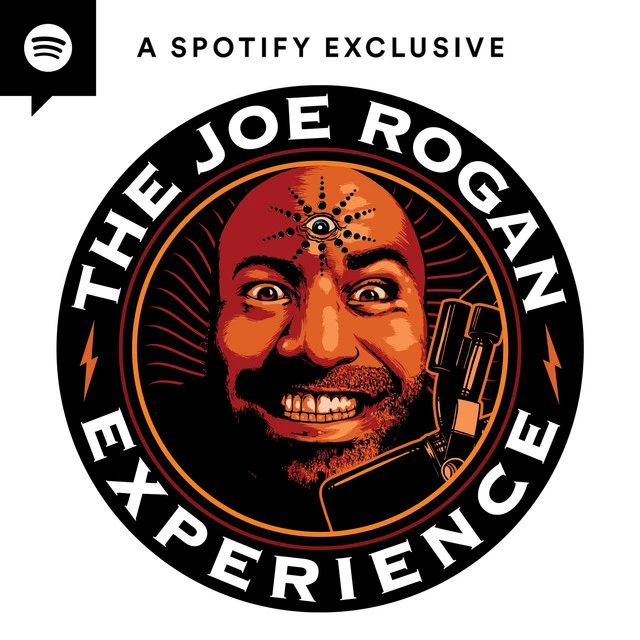
The most popular podcast in the world is The Joe Rogan Experience. It features long form, largely unedited interviews with celebrities, political figures, scientists and other interesting people.
Thanks to a $200 million deal, it’s exclusive to Spotify, and episodes tend to run around 3 hours.
- The News Agents
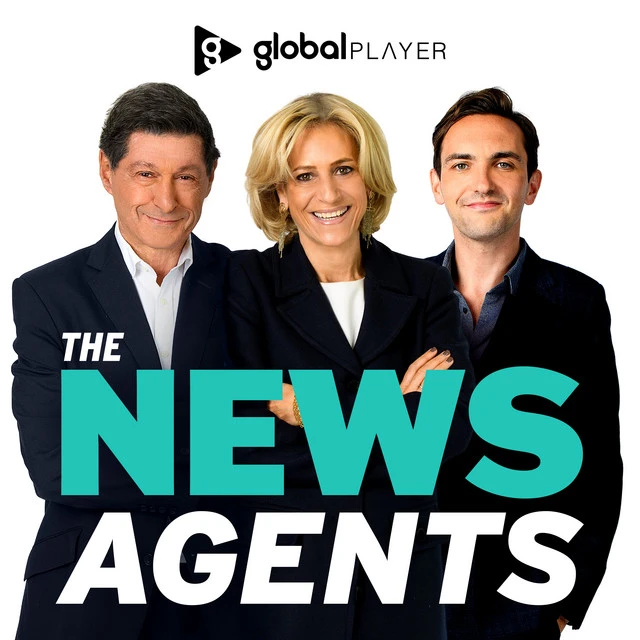
The News Agents is one of the most popular shows on Captivate, and features three of the UK’s most recognisable journalists discussing breaking news and politics. The podcast has exploded in popularity thanks to the accessible way the hosts present their expert views and insights, shedding light on what’s going on behind the headlines.
- Wong Notes
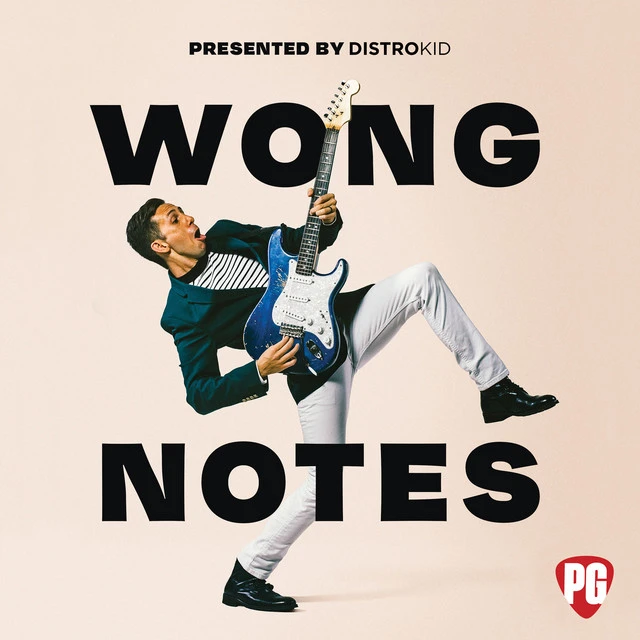
Wong Notes is a podcast by Cory Wong, an American guitarist and songwriter. Known for his solo career and his recording and touring work with Vulfpeck, Cory interviews famous and influential musicians like John Mayer, Jason Isbell and Mateus Asato.
- Verbal Diorama
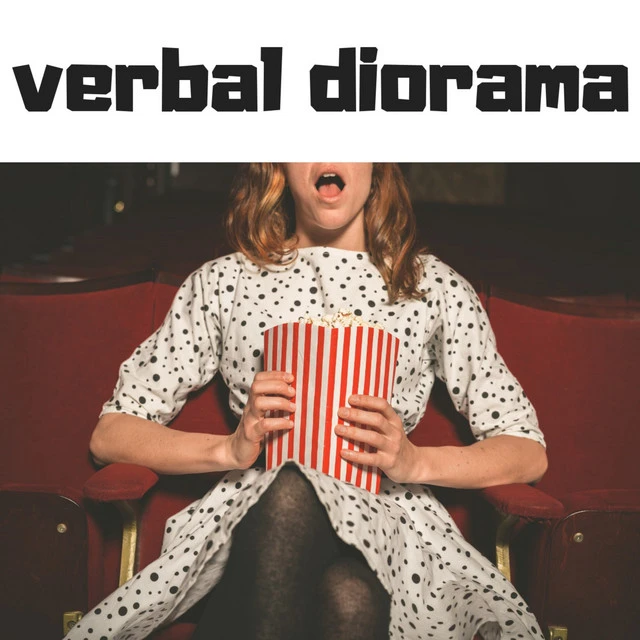
Verbal Diorama is produced and hosted by Em McGowan, a freelance writer for Film Stories and co-creator of the Independent Podcast Awards. Are you a movie fanatic, who often wonders how movies are made, or how a film went from conception to completion? Then this podcast is for you. Tune in each week as Em explores the history and legacy of movies you know, plus some you don’t!
- The Declutter Hub Podcast
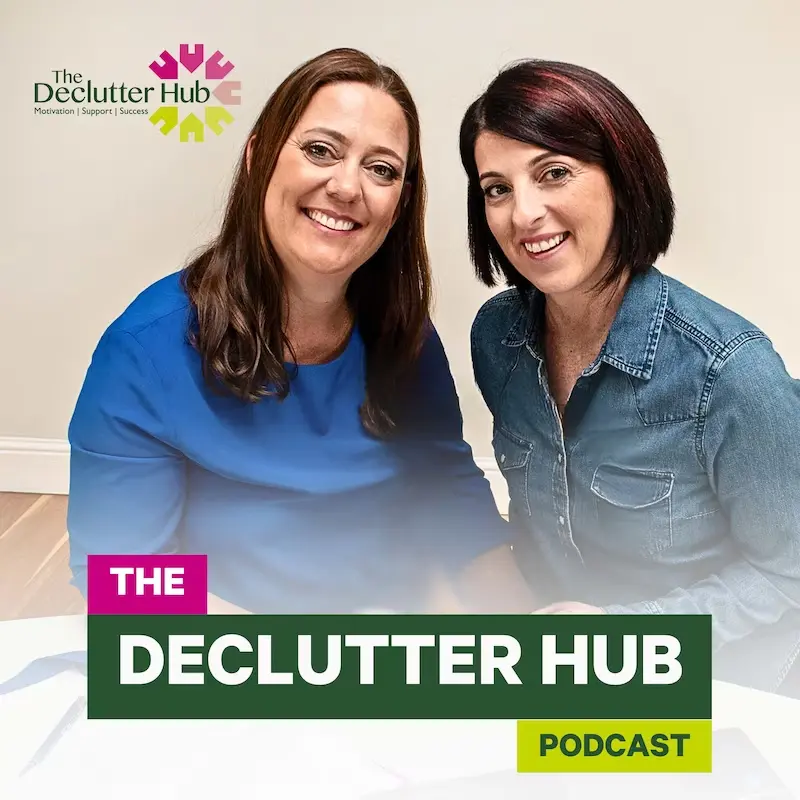
Hosted by Ingrid Jansen & Lesley Spellman, thousands of listeners tune in to The Declutter Hub podcast, who are overwhelmed with clutter and want solutions! The show has been featured on the likes of BBC Radio 4, The Guardian, BBC Breakfast and Good Housekeeping. Each week hosts Ingrid and Lesley bring light-hearted fun to the serious business of decluttering with hints, tips, insights and guest experts to help you every step of the way.
How do you start a podcast?
All you need to start a podcast is an idea and a microphone – anything else, you can learn! We work with brand new podcasters all the time, and we have an entirely free course available here to teach you everything from how to come up with a topic to how to promote your completed episodes.
Check out our guides on everything from what headphones to use to all the equipment a beginner will need, and make sure you hit the ground running!
What do you talk about on a podcast?
The sky’s the limit with your podcast topic – the main drive is that it should be something that you’re interested in. If you’re not fully sold on the content yourself, you’ll never stick with it enough to engage listeners.
That aside, anything you can conceive of can be talked about on a podcast – we have a full in depth guide on how to choose a podcast topic here, including a discussion on how to balance your interest with finding a gap in the market.
What are the different podcast types?
You’ve got plenty of options when you’re choosing your podcast format and how you’re going to structure your podcast. We’ve got a full rundown here, but let’s look at the three biggest formats:
Interview
An interview podcast involves the host(s) asking different guests questions each episode. They’re popular because the content of your show is naturally varied each time you record, and it’s not all on the hosts to deliver a consistently entertaining show – the guests do a lot of that too.
These are particularly great if you’re interested in a particular niche and want to share some inside stories. It could be techno music, cookery, curling or anything else you can think of.
Co-hosted
This involves you and one or more friends discussing a different topic each week. Working with others increases accountability, so you’ll be more motivated to keep going, and allows you to play off one another. With a good co-hosted show, the chemistry is palpable and you feel like you’re in a room with your friends.
Another article we think you'd like...
Reading Time: 6 minutes Learn about the benefits and uses of private internal podcasts as well as some tips and best practices for producing successful internal communications.
Solo
Just you, a microphone and a subject you’re passionate about! There are no restrictions on you when you’re a solo podcaster – record anywhere, at any time, and about whatever you want.
Are none of your friends as into woodworking as you? Doesn’t matter! Start a show on your own and connect with passionate listeners in your niche.
How much does it cost to start a podcast?
It’s easy to be overwhelmed by the sheer amount of podcasting equipment you can buy. You don’t need to break the bank to make a great quality podcast when you’re just starting out, though – all you really need are these things:
- A computer. Or an iPad, or other device capable of running a Digital Audio Workstation. You’ve very likely already got one.
- A microphone. This is the one thing we’d recommend spending a little cash on. Check out our recommended microphones for all budgets here.
- A hosting provider, like Captivate. There’s little point in having a show unless it’s on streaming services and you’ve got a website, and we take care of all that plus much much more, for $19/month.
- A digital audio workstation is a piece of software on which you can record, edit and export audio. There are some great free ones available, like Audacity or Garageband.
- Headphones. You can get a really good pair of headphones for just under $50, a pair that will last you forever if you want them to. It’s worth the investment – podcasts are all about audio, so it’s imperative you can hear what you’re broadcasting.
So, likely around $130 for headphones and a microphone, and then $19 each month for a hosting provider. You can read our full gear and equipment guide here, as there are some great extras you’ll want to look at if you can spend the money.
FAQs
- How do I listen to a podcast?
You’ll listen to a podcast on a streaming service like Spotify or Apple, or on the podcaster’s website. There’ll be loads of podcasts on whichever streaming app you currently use! Finding podcasts is easy, too: apps will recommend what’s popular or what is new and worth checking out. You can also search by category, or type in a keyword or topic. Unlike radio shows, podcasts aren’t live, and are accessible at all times.
- Is YouTube considered a podcast?
YouTube is breaking into the podcasting space in a big way, so yes, there are a lot of podcasts on YouTube. Not all videos are podcasts, though – there’s a massive range of content on there.
- Can you make money from podcasts?
Yes! It’s now easier than ever to monetize thanks to our new Memberships, Tipping and Ad Insertion features. You can offer premium content to paying fans, accept one off donations and easily swap out sponsors across your back catalogue with the click of a button – discover more about our industry leading podcast monetization features here!
- What does it mean to subscribe to a podcast, and how do you do it?
It means to receive notifications when new episodes are released. It’s totally free, and you do it in the directory app. Just click “subscribe” next to the show you love.
- How long are podcasts?
The length of podcasts varies wildly, based on the topic and the target audience. Do some research into who you’re trying to reach and how much free time they’ve got, and then base your episode length on that. Read our full guide on how to find your ideal episode length here.
- What is someone who speaks on a podcast?
Usually, this person is called a podcast host, but it could also be a guest or an interviewee.
- What is a podcast series?
A podcast series refers to a number of episodes of the same show, similar to how television seasons are structured. Rather than being episodic and releasing new episodes weekly, a podcast may decide to structure their show by seasons, with X number of episodes in each season.
- Are podcasts the same as radio shows?
No, they’re much more. It helps some people understand podcasts by thinking of them as radio on demand, but really podcasts are so unbound by genre, time constraints and corporate interests that they’re quite dissimilar to radio.
- What is the difference between a podcast show and podcast episodes?
A podcast show refers to the whole podcast, like The Joe Rogan Experience. A podcast episode is then an individual release from that show – like the episode where Mark Zuckerberg is interviewed.
- What is a podcast app?
Also known as a directory, a podcast app is a streaming app through which podcasts can be accessed. Spotify, Apple and Amazon Music are some big ones.
- What is a podcast RSS feed?
An RSS feed is basically the podcast’s “home”. It’s a database of episodes and metadata like titles and artwork, from which all directories pull in order to list podcasts on their apps.
- What is a podcast network?
A podcast network is a number of podcasts linked together, usually all owned by the same host or agency. Being part of a network can increase your reach and offer access to greater resources.
- What is a private podcast?
A private podcast is a podcast only accessible to listeners who are specifically invited. They’re used for exclusive, monetized content or intra-company communication, and aren’t available to the general public on streaming services. Captivate has private podcasting capabilities for you to dig into!
Takeaway
Podcasts have been here since 2003, and they’re only getting bigger. In many ways, they’ve played a big role in the democratization of information – now anyone with a microphone and an idea can get to the top of Spotify’s charts from their bedroom!
Your podcast can be about anything, and with anyone – they’re immensely popular with listeners as they can be engaged with passively, and they’re relatively cheap to start up and maintain, so new creators are always getting involved. Join the conversation and become part of the ever swelling ranks of successful audio creators today.

